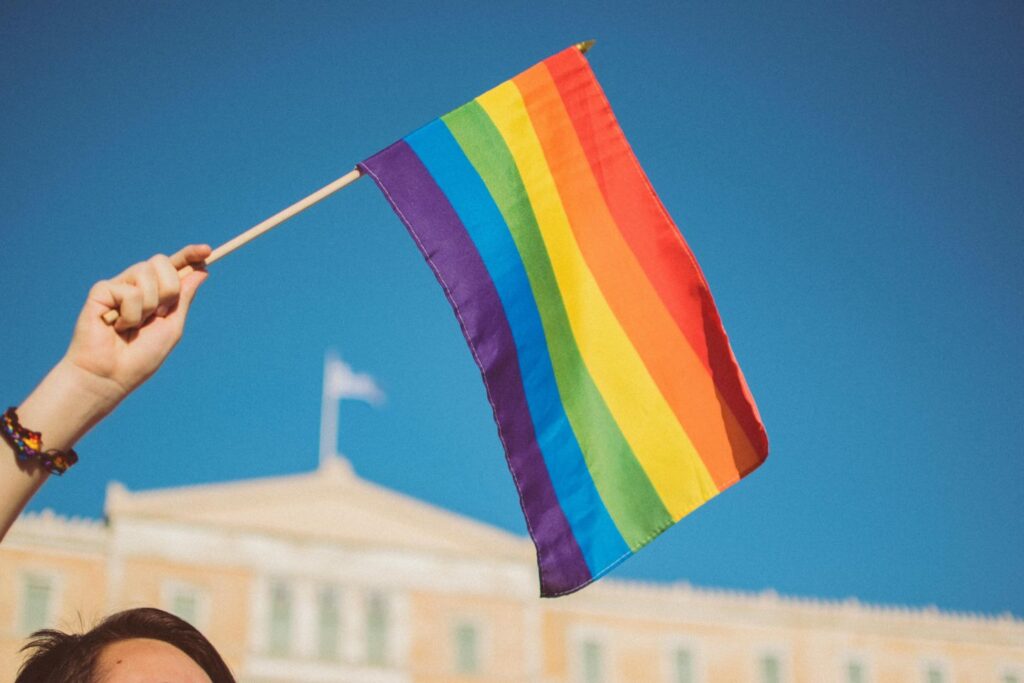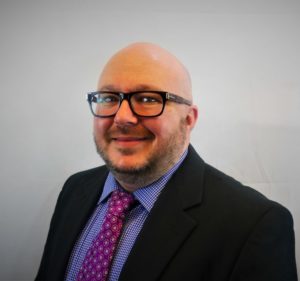COLE THALER | December 20, 2019
Atlanta’s lack of affordable housing and booming gentrification are serious problems for all low-income people in our city – but some communities are hit harder than others.
 Lesbian, gay, bisexual, transgender, and queer (LGBTQ) people in Atlanta are particularly vulnerable to housing instability.
Lesbian, gay, bisexual, transgender, and queer (LGBTQ) people in Atlanta are particularly vulnerable to housing instability.
As advocates for housing justice, it’s critical for us to recognize this and understand the reasons why.
1. LGBTQ people are disproportionately living in poverty, and therefore are more likely to need affordable housing.
A recent study by the Williams Institute at UCLA School of Law found that 21.6% of LGBTQ people in the United States experience poverty, compared to 15.7% of cisgender* straight people. The study found that one in five (21%) LGBTQ people in urban areas live in poverty, and one in four (26.1%) in rural areas are poor, compared to about 16% of cisgender straight people in both areas.
[*cisgender refers to people who are not transgender, or whose gender identity matches the sex they were assigned at birth.]

21.6% of LGBTQ people in the United States experience poverty, compared to 15.7% of cisgender straight people.
Higher rates of poverty mean a more acute need for affordable housing. And Atlanta doesn’t have much of that to offer: half of Atlanta renters are moderately or severely rent-burdened, meaning that their housing costs exceed a third of their income. And things are trending in the wrong direction: between 2011 and 2016, Atlanta lost more than 13,000 affordable housing units.
Atlanta simply does not have enough affordable units for all of the people (LGBTQ or otherwise) who need them.
2. LGBTQ people are more likely to be subjected to housing discrimination.
In 2015, Tonya and Rachel Smith, a married same-sex couple with two children, found a two-bedroom townhouse to rent. They conducted a walk-through with the landlord. However, within hours, the landlord notified Tonya and Rachel that she would not be renting to them, because she thought their “unique relationship” would become the focus of discussion in town and would harm her standing in the community.

The very real risk of discrimination in the housing market shrinks the pool of available and affordable housing even further.
Luckily, Tonya and Rachel were able to secure free legal representation from Lambda Legal, which sued their Colorado landlord for violating federal sex discrimination law. But many LGBTQ people do not have the luxury of legal representation, and are forced to endure refusals to rent or harassment from their landlords, property managers, or neighbors.
The very real risk of discrimination in the housing market shrinks the pool of available and affordable housing even further.
3. LGBTQ people are less likely to have family safety nets to turn to in times of need.
Countless times, our clients have told us that they turn to family members when they lose their housing. Sometimes this looks like moving into a brother’s guest bedroom or sleeping on a mother’s couch. Sometimes it looks like emergency loans from cousins or grandmothers. In the absence of an effective governmental or charitable safety net, family often fills in the gaps.

Heartbreakingly, LGBTQ youth are often kicked out of their family homes when they come out of the closet, leading to very high rates of LGBTQ youth homelessness.
But family support is often not an option for LGBTQ people, who may be estranged from blood relatives who “disapprove” of LGBTQ identities. Heartbreakingly, LGBTQ youth are often kicked out of their family homes when they come out of the closet, leading to very high rates of LGBTQ youth homelessness.
A 2017 report by Chapin Hall at the University of Chicago found that LGBTQ young adults had a 120 percent higher risk of reporting homelessness compared to youth who identified as heterosexual and cisgender. A supportive family is often the only thing that stands between an impoverished person and street homelessness. The lack of this support in an LGBTQ person’s life can have dire consequences.
* * * * *
As advocates devoted to building an Atlanta where every resident has safe and stable housing, we must be cognizant of the disproportionate burdens our neighbors bear. This may look like supporting Lost-n-Found Youth, an Atlanta nonprofit that works to end homelessness for LGBTQ youth. It may look like working to pass and enforce state legislation that explicitly bans discrimination on the basis of sexual orientation and gender identity. Or it may simply look like talking about compassion to friends and neighbors who have not yet come to accept their LGBTQ family members.
Regardless of how we identify, we must strive to put housing within reach for all Atlantans.
Read about our LGBTQ Committee here at AVLF.

Cole Thaler
Director, Safe & Stable Homes Project
Check out more from this author.
Cole serves as the director of AVLF’s Safe and Stable Homes Project. He oversees the Saturday Lawyer Program and the Standing with Our Neighbors Program, among others.
Before joining AVLF, Cole was a supervising staff attorney with Georgia Legal Services Program, where he represented low-income rural Georgians in a variety of civil matters. Previously, Cole worked for Lambda Legal, a national legal organization that works on behalf of lesbians, gay men, bisexuals, transgender people, and those with HIV. Cole attended Williams College before receiving his J.D. from Northeastern University School of Law. He shares his home with two rescue dogs, three rescue cats, and husband.